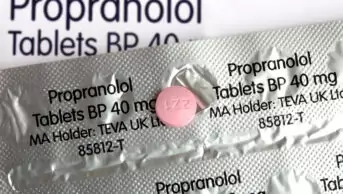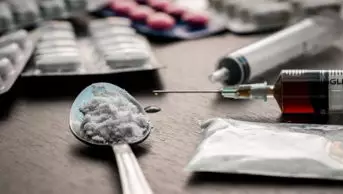
Shutterstock.com
The number of suspected drug-related deaths in Scotland increased by 10% in 2023 according to data from Police Scotland, following a downward trend between 2021 and 2022.
The data show that there were 1,197 suspected drug deaths between January 2023 and December 2023, compared with 1,092 during the same period in 2022.
Suspected drug-related deaths fell by 8% in 2021, with 1,295 suspected deaths between January 2021 and December 2021, compared with 1,411 suspected drug deaths recorded during the same period in 2020.
Responding to the rise, Catriona Matheson, professor in substance use at the University of Stirling and former chair of the Scottish government’s drug deaths taskforce, told The Pharmaceutical Journal that “the pattern of high-risk polydrug use is what is killing people”.
Matheson added that the rise in drug deaths is “largely down to the emergence of new synthetic opioids and the change in benzodiazepine market from etizolam to bromazolam”, adding that xylazine was being used to “pad out heroin supplies” and that cocaine “seems to be stronger”.
“The need for a focus on harm reduction is crucial. An example of this would be drug checking,” she said.
“Unfortunately in Scotland there has been huge resource aimed at residential rehabilitation, which might help a few people but will not reduce drug deaths”.
In January 2021, the Scottish government announced its £250m ‘National mission on drugs’, which included £100m over five years to expand residential rehabilitation.
A statement from Christina McKelvie, Scottish drugs and alcohol policy minister, said: “Drug deaths in Scotland are still too high and every life lost is a tragedy.
“We’ll continue to expand residential rehabilitation capacity and drive medication-assisted treatment standards.
“We’re also committed to delivering drug-checking facilities. This year, we’re made a record £112m available to local alcohol and drug partnerships”.
She added that the Scottish government is “working hard to respond to the growing threat posed by super-strong synthetic opioids and, in particular the increased appearance of nitazenes in an increasingly toxic and unpredictable drug supply”.
“These are being found in a range of substances and bring with them increased risks of overdose, hospitalisation and death.
“Because they are many times stronger than opioids like heroin, I would urge people to carry extra life-saving naloxone kits,” McKelvie said.
In September 2023, the Scottish government announced that every community pharmacy in Scotland would stock emergency supplies of naloxone from October 2023.
The Scottish government told The Pharmaceutical Journal in November 2023 that it would be submitting planning applications for drug checking facilities “in the coming months”.
The first proposed drug consumption room in the UK was given the go ahead in Glasgow in September 2023.
A study published in The Lancet on 6 June 2023 showed that drug-related deaths in Scotland for people treated for opioid dependence had more than trebled between 2011 and 2020.
The authors of the study said that around 90% of these deaths had involved opioids, such as heroin, morphine or methadone, used alongside other substances, including benzodiazepines, gabapentinoids, cocaine and alcohol.


